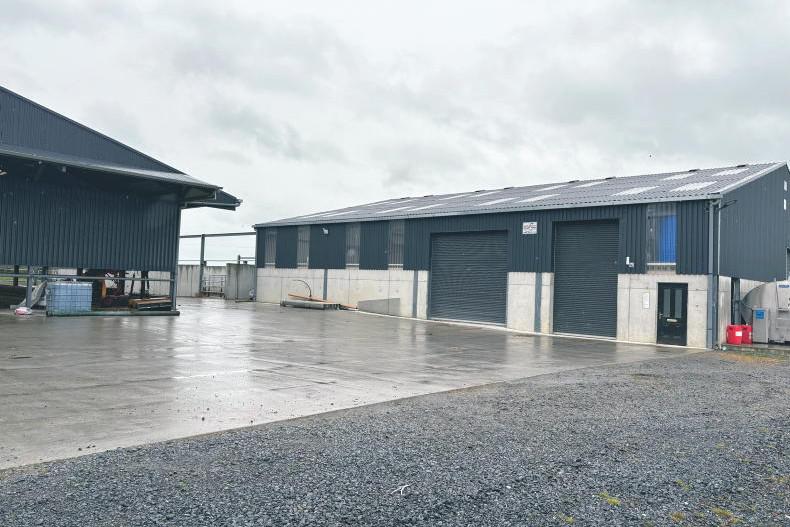It can be hard to find someone who is very good at their job and if you are a farmer who is on the lookout for an employee it may be worth looking into how you can provide a better work environment for your candidates. Employer provided accommodation is a distinct advantage, especially in todays housing market. Free or subsidised accommodation is an engaging opportunity for employees and puts an employer ahead of its competitors in trying to land their best possible candidate, but there is something called BIK to consider.
Benefit In kind in farming
A lot of people talk about the acronym “BIKs” without actually knowing what they are and how they work. A BIK is a benefit in kind. These are benefits that cannot be converted into cash but have a cash value. More often than not they are something an employee has the use of without owning it, for example, a company car. BIK’s are chargeable when your employee’s total income including benefits is greater than €1,905 in a given year. In September 2022 it was announced than an employer can give employees up to two small benefits tax free, each year. This benefit must not exceed €1,000 and cannot be in cash. An example of this would be a voucher. If you exceed the €1,000 the whole value of the benefit given becomes taxable as income.
BIK on accommodation
On many beef, dairy, sheep and tillage farms accommodation is provided for employees of the business. This accommodation is provided to have employees near the farm when necessary and to reduce the burden of trying to find accommodation on an employee who may not be from the area. No BIK occurs when an employee lives in accommodation that is either provided by the employer or if the accommodation is on the business premises. An employee must need to live on the premises to perform their duties for the BIK exemption to apply. This is met by the following: Your employee is required to be on call outside normal hours (calving season, spring tillage work etc), your employee is frequently called out and you provide the accommodation so your employee could access work quickly.
However, if you are providing accommodation that you rent for your employee then BIK is chargeable on this. BIK on rented accommodation is calculated by adding the annual market value of the rent paid and any related expenses paid by the employer such as light and heat. If for example a house is being rented for an employee for €10,000 per year and the employer also paid €4,000 in electricity then the benefit for the employee is €14,000. This is added to their taxable income and PAYE, PRSI and USC must be deducted from the employees pay. If the employee pays you €5,000 towards the rent then the BIK will amount to €9,000 in this circumstance. CL
BIK on company vehicle
Many farmers supply a commercial jeep for their employees who work full time for them and do not have their own transport. When the farmer supplies the vehicle but does not transfer the ownership this is referred to as a BIK. If the vehicle is used solely for duties regarding the farm then this is not classified as a BIK.
If the vehicle is used for both personal and business use then this is a BIK. From 2023 onwards, the BIK cash equivalent for commercial vehicles has risen from 5% of the original market value to 8%. For example, if a jeep originally cost €30,000, the BIK chargeable in the year is €2,400. This €2,400 is added to their tax return as taxable income and PAYE, PRSI and USC must be deducted from the employees pay on the value of the benefit.
If the company vehicle is a car, this is treated differently again. Company car BIK is now calculated using the mileage undertaken and the vehicle’s CO2 emissions. Each car produces a certain amount of CO2 emissions and is then classified into categories A-E, E producing the most CO2 and therefore having the highest percentage rate of BIK. For example, a car with an original market value of €30,000, in category B (producing between 59g/km and 99g/km CO2) and having driven 30,000 business kilometres in the year would have a BIK cash equivalent of €30,000 x 21%= €6,300. Like the jeep above this €6,300 is added to their tax return as taxable income and PAYE, PRSI and USC must be deducted from the employees pay on the value of the benefit.
Read more
Family finance: making your money work for you and your family
It can be hard to find someone who is very good at their job and if you are a farmer who is on the lookout for an employee it may be worth looking into how you can provide a better work environment for your candidates. Employer provided accommodation is a distinct advantage, especially in todays housing market. Free or subsidised accommodation is an engaging opportunity for employees and puts an employer ahead of its competitors in trying to land their best possible candidate, but there is something called BIK to consider.
Benefit In kind in farming
A lot of people talk about the acronym “BIKs” without actually knowing what they are and how they work. A BIK is a benefit in kind. These are benefits that cannot be converted into cash but have a cash value. More often than not they are something an employee has the use of without owning it, for example, a company car. BIK’s are chargeable when your employee’s total income including benefits is greater than €1,905 in a given year. In September 2022 it was announced than an employer can give employees up to two small benefits tax free, each year. This benefit must not exceed €1,000 and cannot be in cash. An example of this would be a voucher. If you exceed the €1,000 the whole value of the benefit given becomes taxable as income.
BIK on accommodation
On many beef, dairy, sheep and tillage farms accommodation is provided for employees of the business. This accommodation is provided to have employees near the farm when necessary and to reduce the burden of trying to find accommodation on an employee who may not be from the area. No BIK occurs when an employee lives in accommodation that is either provided by the employer or if the accommodation is on the business premises. An employee must need to live on the premises to perform their duties for the BIK exemption to apply. This is met by the following: Your employee is required to be on call outside normal hours (calving season, spring tillage work etc), your employee is frequently called out and you provide the accommodation so your employee could access work quickly.
However, if you are providing accommodation that you rent for your employee then BIK is chargeable on this. BIK on rented accommodation is calculated by adding the annual market value of the rent paid and any related expenses paid by the employer such as light and heat. If for example a house is being rented for an employee for €10,000 per year and the employer also paid €4,000 in electricity then the benefit for the employee is €14,000. This is added to their taxable income and PAYE, PRSI and USC must be deducted from the employees pay. If the employee pays you €5,000 towards the rent then the BIK will amount to €9,000 in this circumstance. CL
BIK on company vehicle
Many farmers supply a commercial jeep for their employees who work full time for them and do not have their own transport. When the farmer supplies the vehicle but does not transfer the ownership this is referred to as a BIK. If the vehicle is used solely for duties regarding the farm then this is not classified as a BIK.
If the vehicle is used for both personal and business use then this is a BIK. From 2023 onwards, the BIK cash equivalent for commercial vehicles has risen from 5% of the original market value to 8%. For example, if a jeep originally cost €30,000, the BIK chargeable in the year is €2,400. This €2,400 is added to their tax return as taxable income and PAYE, PRSI and USC must be deducted from the employees pay on the value of the benefit.
If the company vehicle is a car, this is treated differently again. Company car BIK is now calculated using the mileage undertaken and the vehicle’s CO2 emissions. Each car produces a certain amount of CO2 emissions and is then classified into categories A-E, E producing the most CO2 and therefore having the highest percentage rate of BIK. For example, a car with an original market value of €30,000, in category B (producing between 59g/km and 99g/km CO2) and having driven 30,000 business kilometres in the year would have a BIK cash equivalent of €30,000 x 21%= €6,300. Like the jeep above this €6,300 is added to their tax return as taxable income and PAYE, PRSI and USC must be deducted from the employees pay on the value of the benefit.
Read more
Family finance: making your money work for you and your family








SHARING OPTIONS